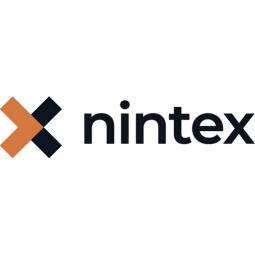Download PDF
Premier Oil Streamlines Document Management with Nintex
Technology Category
- Automation & Control - Automation & Process Control Systems
- Processors & Edge Intelligence - Embedded & Edge Computers
Applicable Industries
- National Security & Defense
- Oil & Gas
Applicable Functions
- Procurement
Use Cases
- Inventory Management
- Tamper Detection
Services
- System Integration
The Challenge
Premier Oil, a global oil and gas company, was grappling with the complexity and inefficiency of their existing document management process. The company's document controller was inundated with a constant flow of requests for permission, information, and documents, and was tasked with managing document numbers listed on a master document. The document coding was neither intuitive nor understood by the offshore workforce who needed access. The document controller also spent countless hours sending permission requests up to management in several departments. Additionally, the company needed to improve document security to ensure that proprietary information was not shared more widely, especially considering that Premier Oil employs up to 100 contractors and vendors offshore on a typical day.
About The Customer
Premier Oil is a global oil and gas company that operates in various parts of the world. The company is committed to maintaining high standards of efficiency and security in its operations. In late 2014, Premier Oil Vietnam recognized the need for improvement in the control and dissemination of its documents. The company sought to increase document security and automate the development and delivery of documents to save time and money, increase efficiency and accuracy of document retrieval, and reduce operational risks. Premier Oil Vietnam employs up to 100 contractors and vendors offshore on a typical day, making document security a critical aspect of their operations.
The Solution
Premier Oil contracted Appvity to overhaul their existing system with SharePoint and Nintex Workflow and Forms. The new Appvity Workflow provides automated document numbering and improved filing and retrieval of documents to enhance document control. The system was reconfigured to deliver clear requests to the appropriate manager, with document numbers being auto-generated to increase efficiency and alleviate potential confusion. The Lazy Approval feature was introduced, allowing managers to approve requests with a simple click, saving time on collating information and drafting approval requests. The new system also allows managers to check where a document is in the process and who is accessing a specific version, improving security and operational assurance. The Nintex solution also enables the setting and changing of permissions for every document flowing through the system, ensuring that proprietary information does not get shared more widely.
Operational Impact
Quantitative Benefit
Related Case Studies.

Case Study
Taking Oil and Gas Exploration to the Next Level
DownUnder GeoSolutions (DUG) wanted to increase computing performance by 5 to 10 times to improve seismic processing. The solution must build on current architecture software investments without sacrificing existing software and scale computing without scaling IT infrastructure costs.

Case Study
Remote Wellhead Monitoring
Each wellhead was equipped with various sensors and meters that needed to be monitored and controlled from a central HMI, often miles away from the assets in the field. Redundant solar and wind generators were installed at each wellhead to support the electrical needs of the pumpstations, temperature meters, cameras, and cellular modules. In addition to asset management and remote control capabilities, data logging for remote surveillance and alarm notifications was a key demand from the customer. Terra Ferma’s solution needed to be power efficient, reliable, and capable of supporting high-bandwidth data-feeds. They needed a multi-link cellular connection to a central server that sustained reliable and redundant monitoring and control of flow meters, temperature sensors, power supply, and event-logging; including video and image files. This open-standard network needed to interface with the existing SCADA and proprietary network management software.

Case Study
Refinery Saves Over $700,000 with Smart Wireless
One of the largest petroleum refineries in the world is equipped to refine various types of crude oil and manufacture various grades of fuel from motor gasoline to Aviation Turbine Fuel. Due to wear and tear, eight hydrogen valves in each refinery were leaking, and each cost $1800 per ton of hydrogen vented. The plant also had leakage on nearly 30 flare control hydrocarbon valves. The refinery wanted a continuous, online monitoring system that could catch leaks early, minimize hydrogen and hydrocarbon production losses, and improve safety for maintenance.








